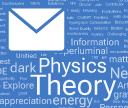First, Thank You!
We launched the Wolfram Physics Project two weeks ago, on April 14. And, in a word, wow! People might think that interest in fundamental science has waned. But the thousands of messages we’ve received tell a very different story. People really care! They’re excited. They’re enjoying understanding what we’ve figured out. They’re appreciating the elegance of it. They want to support the project. They want to get involved.
It’s tremendously encouraging—and motivating. I wanted this project to be something for the world—and something lots of people could participate in. And it’s working. Our livestreams—even very technical ones—have been exceptionally popular. We’ve had lots of physicists, mathematicians, computer scientists and others asking questions, making suggestions and offering help. We’ve had lots of students and others who tell us how eager they are to get into doing research on the project. And we’ve had lots of people who just want to tell us they appreciate what we’re doing. So, thank you!










